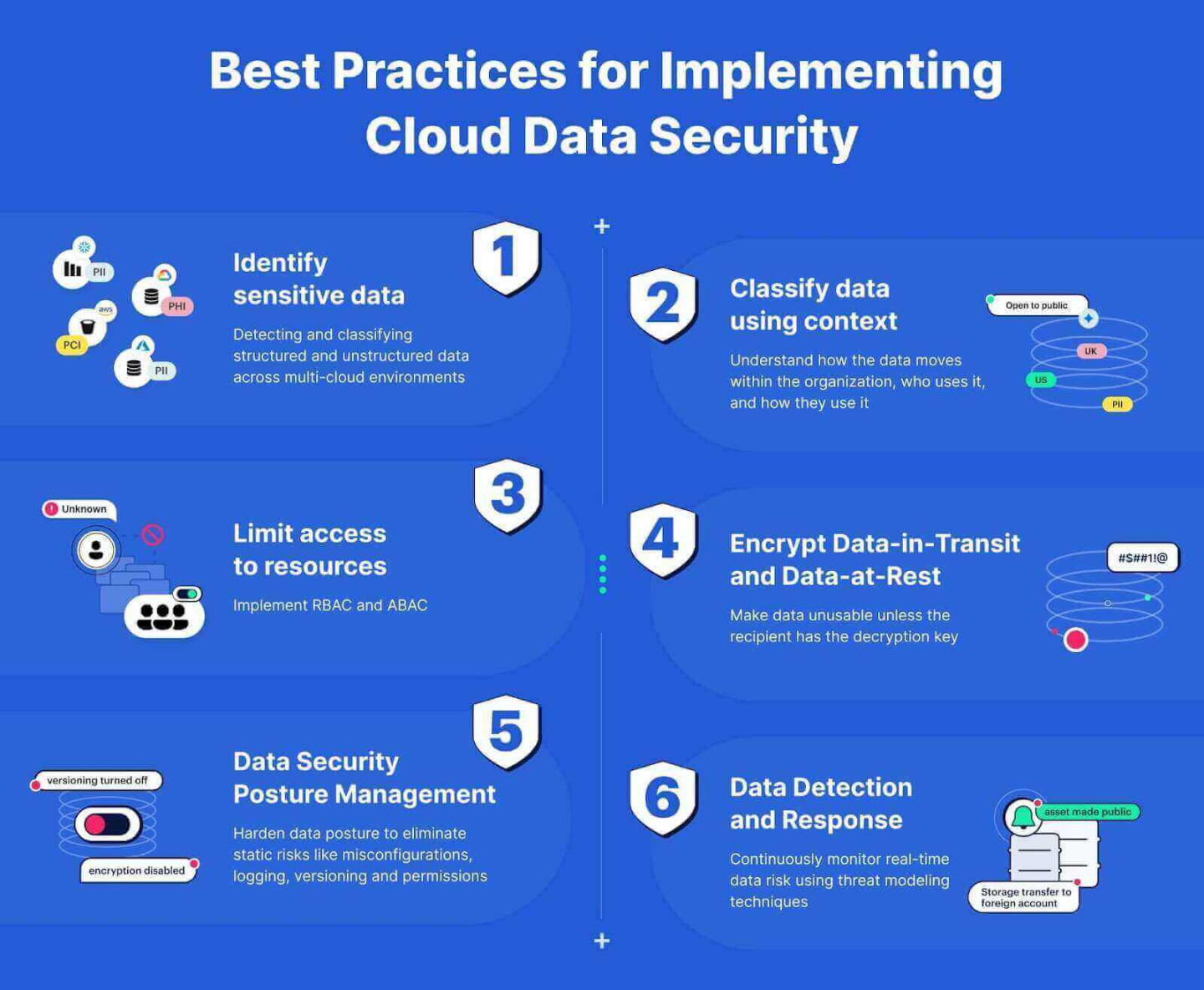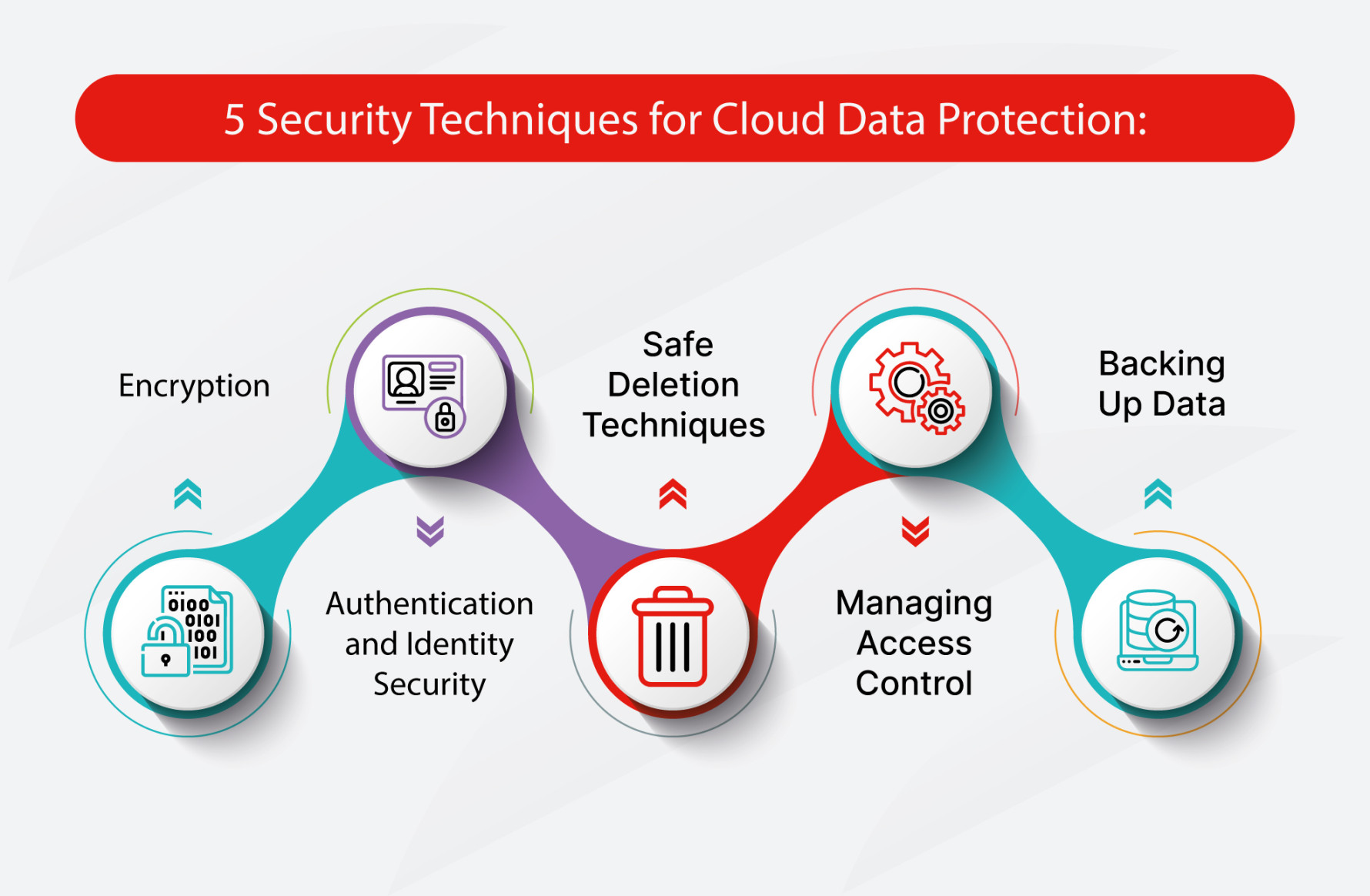Cloud Data Security: Ensuring the Safety of Your Information in the Digital Age
What do you mean by Cloud Data Security?
Cloud data security refers to the protection of data stored in cloud computing platforms from unauthorized access, theft, or corruption. With the increasing reliance on cloud services for storing sensitive information, ensuring the security of this data has become a top priority for businesses and individuals alike. Cloud data security involves implementing various measures and protocols to safeguard data from potential cyber threats and vulnerabilities.
How important is Cloud Data Security?
Ensuring the security of data stored in the cloud is critical for several reasons. Firstly, data breaches can result in significant financial losses, damage to reputation, and legal consequences for businesses. Secondly, with the increasing number of cyber threats targeting cloud environments, it is essential to have robust security measures in place to protect sensitive information from unauthorized access. Lastly, regulatory requirements such as GDPR and HIPAA mandate that organizations take necessary steps to secure their data stored in the cloud.
What is known about Cloud Data Security?
Cloud data security involves a combination of technologies, processes, and policies designed to protect data stored in the cloud from unauthorized access, data breaches, and other cyber threats. Some common measures used to enhance cloud data security include encryption, access control, data masking, and regular security audits. Additionally, cloud service providers often offer built-in security features such as firewalls, intrusion detection systems, and data loss prevention tools to help customers secure their data.
What are the solutions for Cloud Data Security?

There are several solutions available to enhance cloud data security and protect sensitive information stored in the cloud. One effective solution is to encrypt data both at rest and in transit to prevent unauthorized access. Implementing access controls and multi-factor authentication can also help prevent unauthorized users from accessing sensitive data. Regular security audits and penetration testing can help identify and address vulnerabilities in cloud environments, while training employees on best security practices can help prevent insider threats.
Information about Cloud Data Security
Cloud data security encompasses a wide range of technologies and practices aimed at protecting data stored in cloud environments from potential cyber threats. Some common security measures used to enhance cloud data security include encryption, access controls, data masking, and regular security audits. Cloud service providers also offer built-in security features such as firewalls, intrusion detection systems, and data loss prevention tools to help customers secure their data.
When it comes to securing data in the cloud, organizations must take a proactive approach to identify and address potential security risks. This includes implementing strong authentication mechanisms, monitoring access to sensitive data, and regularly updating security policies and procedures. By taking these steps, businesses can ensure the safety and integrity of their data stored in the cloud.

Overall, cloud data security is a critical component of any organization’s cybersecurity strategy. With the increasing number of cyber threats targeting cloud environments, it is essential for businesses to implement robust security measures to protect sensitive information from unauthorized access. By leveraging encryption, access controls, and other security measures, organizations can mitigate the risks associated with storing data in the cloud and ensure the confidentiality, integrity, and availability of their data.
Conclusion
In conclusion, cloud data security is essential for protecting sensitive information stored in the cloud from potential cyber threats. By implementing robust security measures such as encryption, access controls, and regular security audits, organizations can mitigate the risks associated with storing data in the cloud and ensure the safety of their data. It is crucial for businesses to take a proactive approach to cloud data security and stay informed about the latest security threats and best practices in order to safeguard their information effectively.
FAQs (Frequently Asked Questions)
1. What are the common threats to cloud data security?
Common threats to cloud data security include data breaches, unauthorized access, malware, insider threats, and misconfigured security settings.
2. How can I enhance cloud data security for my organization?
To enhance cloud data security, you can implement encryption, access controls, multi-factor authentication, regular security audits, and employee training on security best practices.
3. What are some best practices for securing data in the cloud?
Some best practices for securing data in the cloud include encrypting data, implementing access controls, monitoring access to sensitive information, and regularly updating security policies and procedures.
4. How do cloud service providers help ensure the security of data stored in the cloud?
Cloud service providers offer built-in security features such as firewalls, intrusion detection systems, and data loss prevention tools to help customers secure their data in the cloud.
5. What are the regulatory requirements for cloud data security?
Regulatory requirements such as GDPR and HIPAA mandate that organizations take necessary steps to secure their data stored in the cloud and protect sensitive information from unauthorized access.



